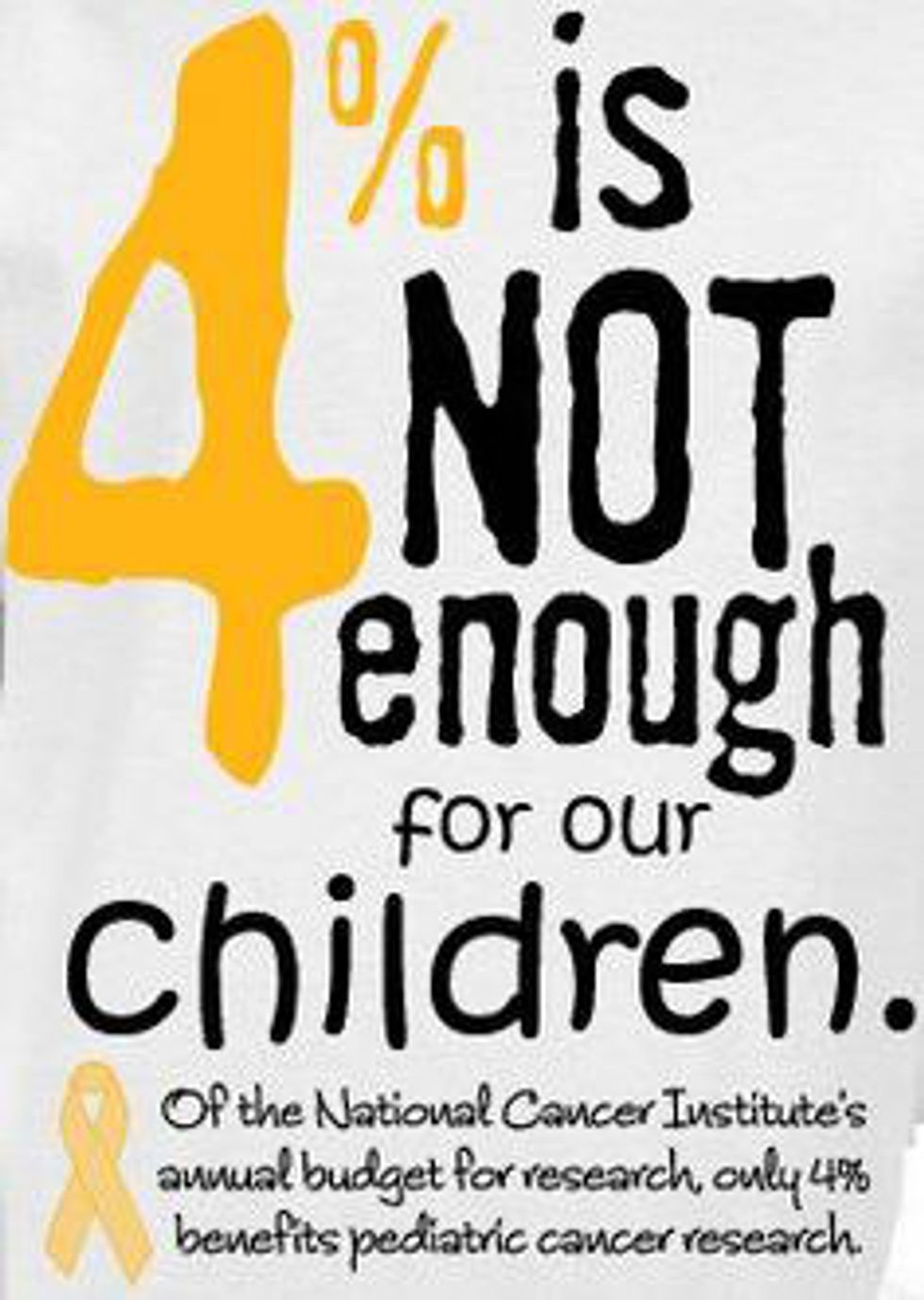Childhood cancer isn’t a topic most people particularly like to talk about. It’s sad to think about kids fighting for their lives, and even more heart wrenching to realize that pediatric cancer isn’t always cute bald kids smiling in a St. Jude’s commercial. It’s important to talk about the realities of childhood cancer, and to raise awareness about just how underfunded research and treatment development is. The US government only gives 4% of funding to childhood cancer—as a whole. Additionally, the American Cancer Society, which boasts net assets equalling over a billion dollars, has been found to only donate a penny of every dollar received to childhood cancer research. There is a plethora of pediatric cancers, with sixteen major types. As the number one disease killer in kids, you would think cancer would receive more priority than it currently has.
In the past twenty years, only three drugs have been approved for treating pediatric cancers. This means that most of the drugs used were designed for adults, whose average age of diagnosis is 66, and carry horrendous side effects, such as tooth decay, hearing loss, infertility, organ failure and in some cases, secondary cancers. It’s imperative that new and better treatments are developed so that these kids are not only cured, but also have a decent quality of life after their fight.
One foundation fighting to raise awareness and find better treatments is BeatNB. The organization was founded in 2010 by Patrick Lacey, whose son, Will, had been diagnosed with neuroblastoma at the age of six months. Neuroblastoma is a highly aggressive form of childhood cancer, commonly found in children under the age of five. Will’s cancer was deemed incurable, sending Patrick into a frenzy. He worked tirelessly with Dr. Giselle Sholler, of NMRTC, raising millions of dollars to fund an experimental trial for a drug called DFMO.
DFMO works to prevent neuroblastoma relapses. When Will was first diagnosed, any patient who relapsed with neuroblastoma was automatically given a death sentence; there was no known drug that could be help with relapsed neuroblastoma.
That is, until Dr. Sholler stepped onto the scene. Spearheading research into neuroblastoma treatments, Dr. Sholler was able to secure a clinical trial for DFMO. DFMO patients remain on the drug for two years, and so far, the trial has seen huge successes in keeping neuroblastoma relapses at bay and saving kids' lives.
Another nonprofit organization, Because of Ezra, began backing Dr. Sholler's research as well. Founded in 2011 after the death of their son Ezra, Kyle and Robyn Matthews started raising money for better neuroblastoma treatments, with the hopes of one day finding a cure. With similar mission statements, Patrick Lacey and Kyle Matthews decided to merge their two foundations in 2016, integrating Ezra’s memory and the work Because of Ezra has been doing under Lacey's existing name of BeatNB.
beatnb.org
BeatNB has outlined their plan to increase the rate of survival for kids diagnosed with neuroblastoma. Their plan is to raise $25 million by the end of 2022, in order to expand the number of research sites, clinical trials, and make DFMO accessible for all neuroblastoma patients. The ultimate goal: beat neuroblastoma by 2027.
This holiday season, please consider giving to the BeatNB cause. If monetary donations aren't possible, at least spread the word about neuroblastoma and bring awareness to the realities of childhood cancer. Kids are worth more than 4% of government funding. Make your voice heard and help researchers like Dr. Sholler change the outlook for kids fighting cancer--and their families.
----
BeatNB is a 501(c)(3) dedicated to raising awareness and funding research in the battle against neuroblastoma.





















